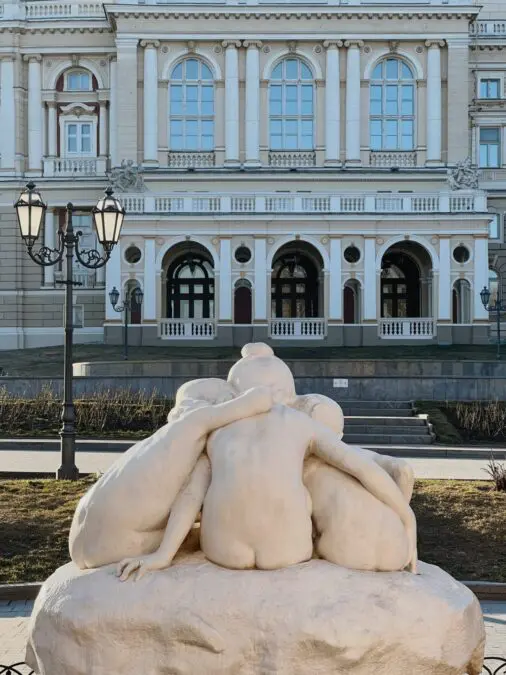Russian forces have advanced several tens of kilometers from the city – Ukraine’s government will ask the UN cultural watchdog to add the historic port of Odessa to the list of protected world heritage sites as Russia’s invasion continues.
Russian forces have advanced several tens of kilometers from the city, which flourished after Empress Catherine the Great decreed in the late 18th century that it would be Russia’s modern gateway to the Black Sea.
Analysts believe Russian President Vladimir Putin may soon direct a Russian advance on Odessa to completely block Ukraine’s access to the Black Sea, possibly with heavy bombardments like those that destroyed the Mariupol port.
In late July, the commercial port and other areas of the city were hit by missiles just hours after Russia agreed to allow Ukrainian grain to be shipped from it.
“On July 24, 2022, part of the glass canopy and windows of the Museum of Fine Arts, opened in 1899, were destroyed” by the impacts, UNESCO’s cultural agency said after its director Audrey Azoulay met with Ukraine’s culture minister Alexander Tkachenko in Paris.
It said UNESCO experts already on the ground would provide technical assistance so that Odessa could be urgently added to both the World Heritage List and the list of heritage sites in danger.
She will ask the World Heritage Committee to include the Saint Sophia Cathedral in Kyiv and the historic center of Lviv, which are already recognized as UNESCO sites, in the list of endangered sites.
The addition of a remarkable site or traditional activity to the UNESCO list aims to mobilize attention to ensure that they are preserved against threats to their existence.
The agency said 175 Ukrainian cultural and historical sites have been damaged since Russia began its invasion in February, including monuments, museums, libraries and religious buildings.
Many have suffered despite being marked with the distinctive “blue shield” that indicates they are protected by the 1954 Hague Convention on Culture in Armed Conflict, to which both Russia and Ukraine are signatories.
“The agency has already mobilized nearly 7 million dollars and provided several aid measures and experts to advise the specialists” working to protect the sites or to move the works of art to safer places, UNESCO said.
In July, Ukraine also won recognition of the beetroot soup, known as borscht, on its list of intangible cultural heritage, which it says is under threat from the Russian invasion.
Photo by Valeriya Kobzar







